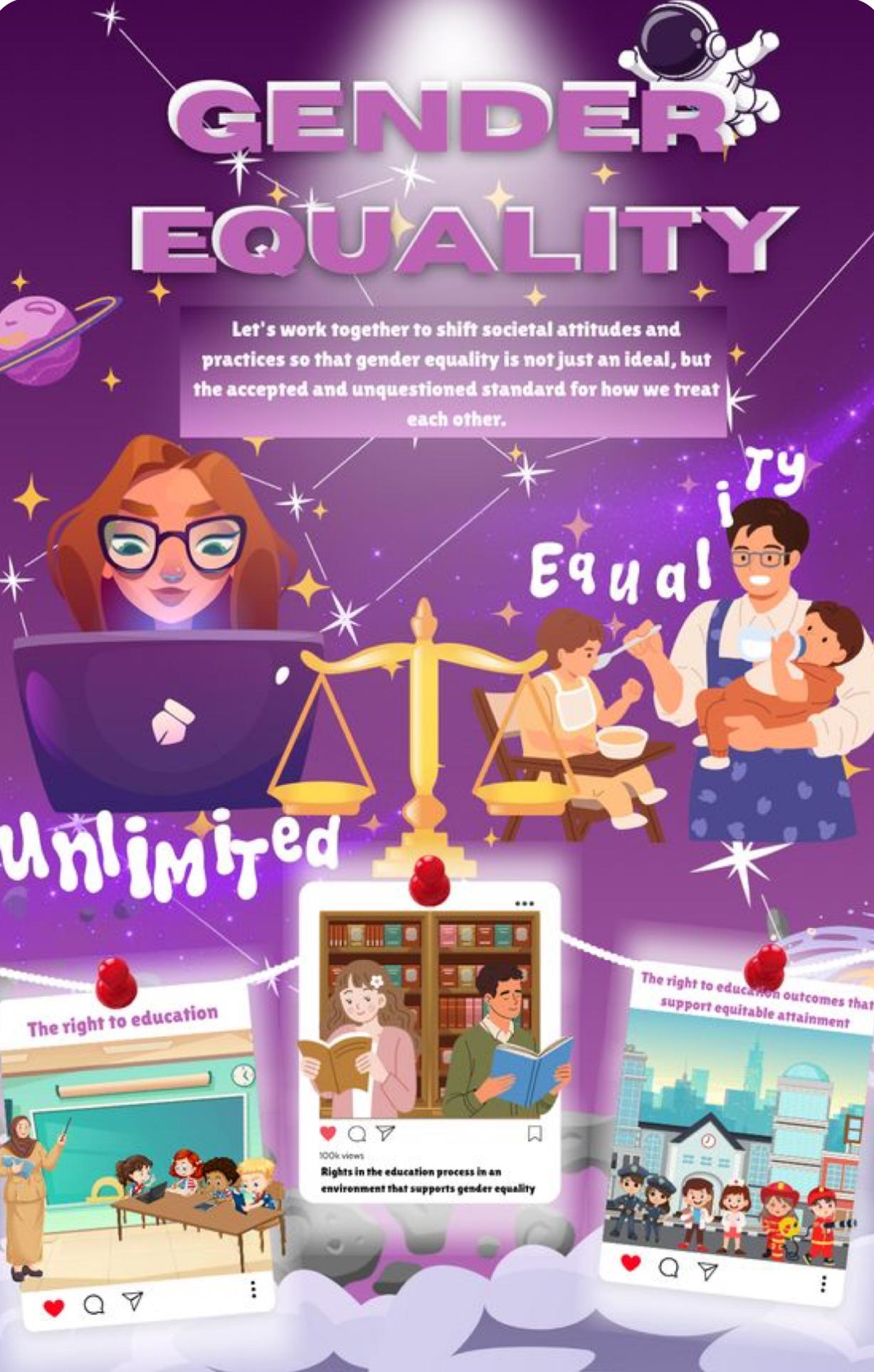Gender equality means giving men and women equal opportunities in every sphere of life—education, employment, decision-making, and social participation. Unfortunately, for centuries, women were denied basic rights and restricted to household roles, while men dominated public life. Even today, despite progress, gender discrimination still exists in many parts of the world, including India. Women are often paid less than men, face barriers in education, and are judged by stereotypes rather than their talent.
The importance of gender equality cannot be ignored. When women are empowered, societies become stronger. Educated women contribute not only to their families but also to the nation’s economy and development. Studies show that countries with higher gender equality enjoy better health, education, and economic stability. Equality is not about competing with men—it is about ensuring fairness, justice, and dignity for everyone.
India has made significant progress with programs like Beti Bachao, Beti Padhao and reservations for women in education and politics. More women are now becoming doctors, engineers, scientists, and leaders. However, challenges like child marriage, domestic violence, and workplace discrimination must still be addressed. Creating awareness, enforcing strict laws, and changing mindsets are key steps to achieving true equality.
Gender equality benefits everyone, not just women. Men also gain when societies are fair and inclusive. A world that treats boys and girls equally is a world that nurtures talent, creativity, and progress without bias. True equality is when no dream is too big for a girl, and no opportunity is denied because of gender.

